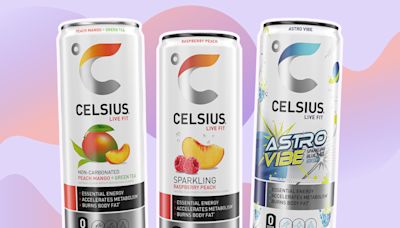Search results
Feb 19, 2024 · Energy drinks contain caffeine, sugar, amino acids and herbal extracts that, combined, can cause side effects like anxiety, arrhythmia and headaches. They claim to give you lasting, focused energy ...
- www.ncbi.nlm.nih.gov
- › Journal List
- › Nutrients
Sep 9, 2023 · This review aims to examine the reported effects of acute or chronic abuse of energy drinks on human health. The analysis shows a significant prevalence of adverse effects, particularly on the cardiovascular and neurovegetative systems.
Jul 28, 2022 · Energy drinks contain high levels of caffeine, sugar, and a variety of other legal stimulants. Experts warn that energy drinks can increase blood pressure and cause irregular heart rhythms. Combining alcohol and energy drinks may cause further health problems and increase the risk of binge drinking.
- www.nccih.nih.gov
- › Health Information
A growing body of scientific evidence shows that energy drinks can have serious health effects, particularly in children, teenagers, and young adults. In several studies, energy drinks have been found to improve physical endurance, but there’s less evidence of any effect on muscle strength or power.
- www.eatingwell.com
- › Healthy Eating
Oct 3, 2023 · Health Benefits & Potential Risks. Precautions. Choosing the Healthiest. Healthier Alternatives. From well-known brands like Red Bull, Monster and 5-Hour Energy to newcomers like Celsius and Prime, the energy drink market is booming so much it now takes up nearly a full aisle at some supermarkets.
Apr 13, 2017 · But some health professionals have warned that energy drinks may have harmful consequences, which has led many people to question their safety. This article weighs the good and the bad of...
- www.ncbi.nlm.nih.gov
- › …
- › Sports Health
- › v.13(3); May-Jun 2021
Nov 19, 2020 · Studies were included in this systematic review if they were (1) level 1 to 4 evidence published in English, (2) included human patients of any age, (3) evaluated the use of energy drinks, and (4) reported adverse effects after consumption of energy drinks.
Jan 9, 2024 · “Excessive consumption of energy drinks can lead to negative health effects, including increased heart rate, high blood pressure, insomnia, anxiety, and digestive issues,” says...
Aug 31, 2022 · Energy drinks are the second most popular dietary supplement among U.S. teens and young adults behind multivitamins. Most energy drinks contain 100–300 milligrams of caffeine per serving, although amounts can vary. Up to 400 milligrams of caffeine per day is considered safe for most adults.
Emerging evidence has linked energy drink consumption with negative health consequences in youth like risk-seeking behaviors, poor mental health, adverse cardiovascular effects, and metabolic, renal, or dental problems.






